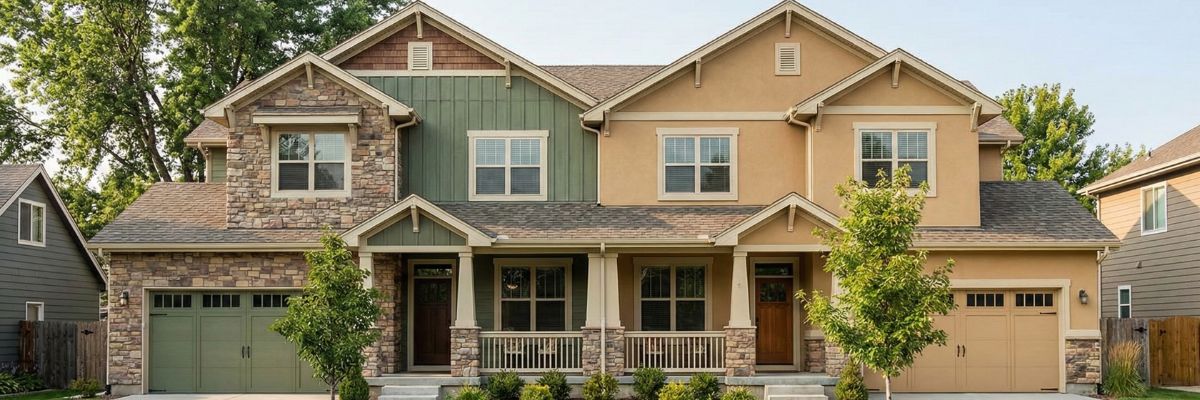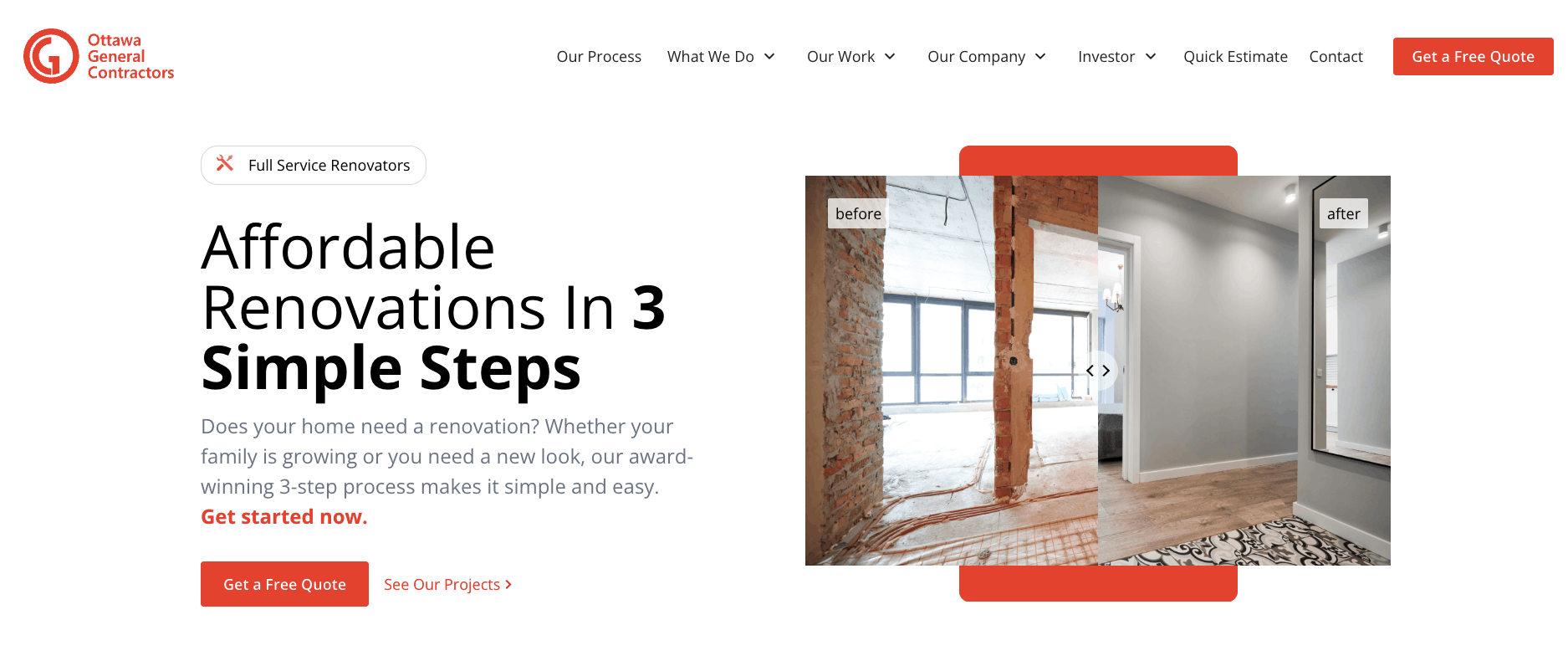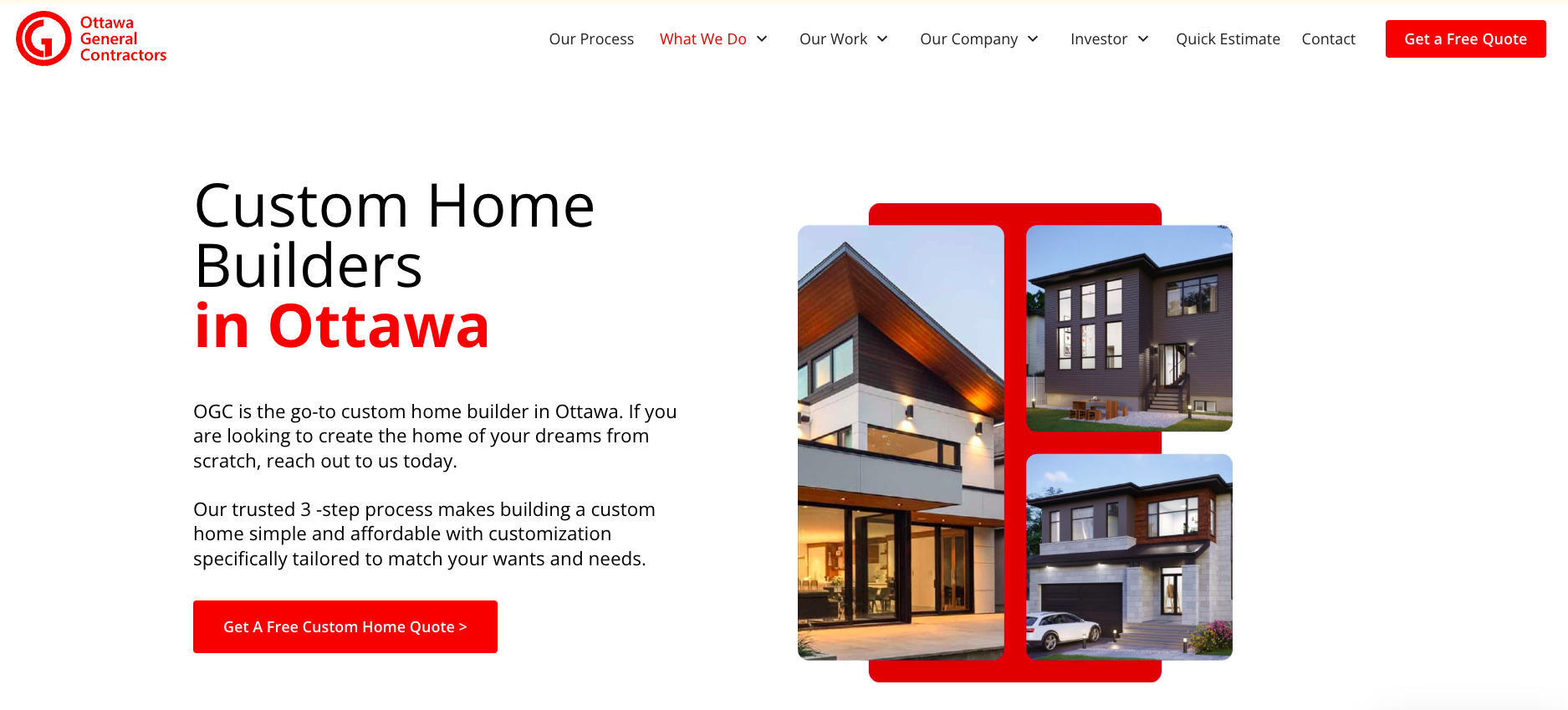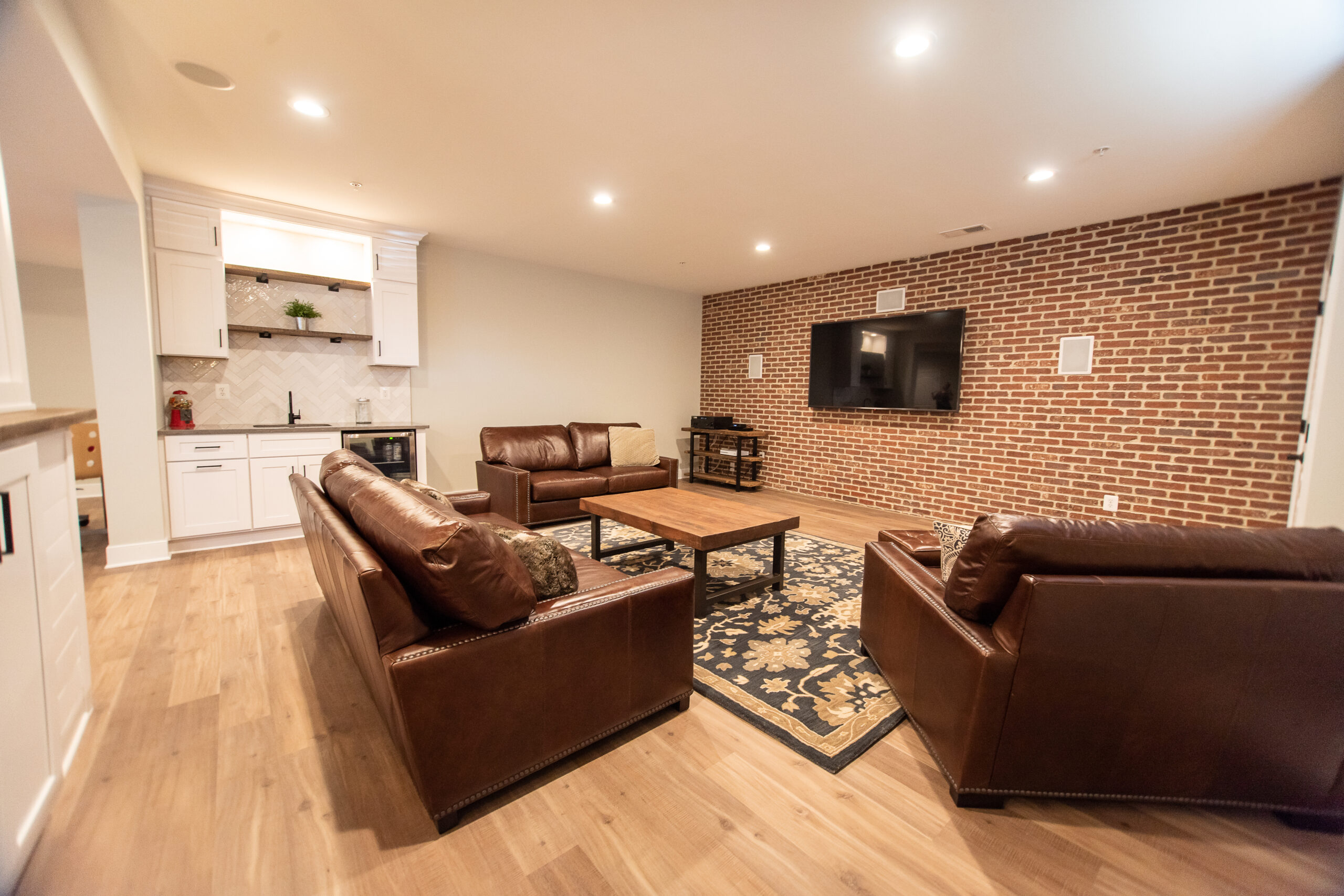How to Build a Custom Home in Ottawa
To build a custom home in Ottawa, you’ll need to follow a clear process that includes planning, design, permitting, construction, and final inspections. Each stage is required by the City of Ottawa and ensures your new home meets safety codes, zoning bylaws, and your personal design goals.
In simple terms, the journey starts with setting a budget and hiring an architect to design your home. Once your plans are approved and permits issued, your builder can begin construction. After final inspections are completed, you’ll receive occupancy approval and can move into your new home.
This guide breaks down each step in detail-from budgeting and permits to choosing the right builder-so you can understand what’s involved in building a custom home in Ottawa and how to navigate the process efficiently.
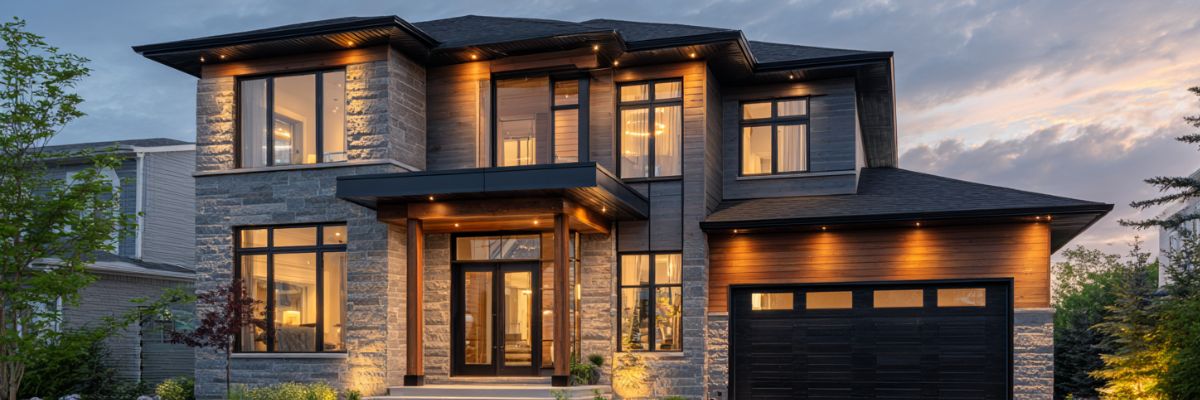
Understanding the Custom Home Process in Ottawa
Building a custom home in Ottawa involves five major stages: planning, design, permitting, construction, and final inspection. Each step is essential for ensuring that your new home meets city regulations, passes safety standards, and turns out exactly as you envisioned.
Because Ottawa’s zoning and building codes are detailed, proper preparation and working with experienced professionals are critical to avoid costly delays or redesigns later.
Step 1: Initial Planning and Budgeting
Every successful custom home project starts with clear planning. Before you even engage an architect or builder, define your goals and non-negotiables-the size, layout, style, and must-have features that will shape your design.
Think carefully about your lifestyle needs:
- Do you want an open-concept layout or more defined rooms?
- Are you planning for multi-generational living or future accessibility?
- How important are sustainability features like solar panels, insulation upgrades, or heat pumps?
Setting a Realistic Budget
Budgeting for a custom home in Ottawa goes beyond construction costs. It should also include:
- Land purchase and preparation: Clearing, grading, and site servicing can add up quickly depending on soil conditions and access.
- Design and permit fees: Architects, engineers, and city permit costs vary but are essential.
- Construction and materials: Labour, materials, and contingency (typically 10–15% of total cost).
- Utilities and landscaping: Driveways, fencing, decks, and utility hookups.
Custom home prices in Ottawa vary widely based on design complexity and finishes, but most projects range between $300–$500 per square foot. Being transparent with your builder about budget expectations ensures designs are feasible before finalizing plans.
Step 2: Selecting Designers and Architects
Once you have a clear vision and preliminary budget, the next step is design. Working with an architect or residential designer ensures that your home layout is both functional and compliant with Ottawa’s zoning bylaws.
Your designer will create detailed site plans, floor plans, elevations, and structural drawings that capture your vision while aligning with city requirements for lot coverage, setbacks, and building height.
What to Expect During Design
The design phase often involves multiple drafts and revisions. A good designer will walk you through 3D renderings or conceptual models to help visualize the space. You’ll also make early decisions on materials, energy systems, and orientation to maximize natural light and efficiency.
Because Ottawa experiences long winters, energy-efficient design plays a major role. Features like triple-pane windows, proper insulation, and airtight building envelopes can dramatically improve comfort and lower utility costs.
Step 3: Choosing the Right Builder
Selecting a qualified, reputable builder is one of the most important decisions in your entire project. A great builder not only executes your vision but also manages timelines, subcontractors, budgets, and quality control.
When comparing builders, look for:
- Experience with custom homes rather than production or spec builds
- Valid licensing and insurance in Ontario
- Strong client references and transparent contracts
- Clear communication and project management tools
Ask potential builders about their warranty coverage, whether they’re registered with Tarion Warranty Corporation, and how they handle unexpected changes or price fluctuations.
Pro Tip
Don’t just pick the lowest quote. The cheapest option can sometimes lead to compromises on materials or workmanship. Instead, focus on value, reliability, and proven results.
Step 4: Securing Building Permits
Before construction can begin, you must obtain the necessary building permits from the City of Ottawa. This is a formal process that ensures your home meets local safety and zoning regulations.
Permit Requirements
A typical permit application includes:
- Site plan and zoning compliance summary
- Architectural and structural drawings
- Elevations and roof plan
- Foundation and framing details
- Mechanical, electrical, and plumbing layouts
- Engineering stamps (if required)
Processing times depend on project complexity. For most single-family custom homes, expect 1–3 months for review and approval. Incomplete or inconsistent documentation is the leading cause of delays, so ensure your design team submits a full and accurate package.
Other Considerations
Depending on your lot location and project scale, additional approvals may be needed-for example, conservation authority permits (if near protected areas), grading and drainage plans, or septic system approvals for rural lots.
Step 5: Construction Phase
With permits in hand, your project moves to the construction stage-the most exciting and visible part of the journey. This stage includes multiple phases:
- Site Preparation: Clearing, excavation, and grading.
- Foundation Work: Pouring footings and basement walls.
- Framing: Building the structural skeleton of your home.
- Rough-ins: Installing plumbing, HVAC, and electrical systems.
- Insulation and Drywall: Closing up walls and ensuring energy efficiency.
- Interior Finishes: Flooring, cabinetry, fixtures, and paint.
- Exterior Work: Roofing, siding, windows, and landscaping.
Communication is Key
During construction, maintain regular communication with your builder. Weekly or biweekly updates help you stay informed on progress and any changes that may arise due to weather, materials, or scheduling.
Ottawa’s climate can also influence timelines-frozen ground or heavy snowfall can delay foundation work and exterior finishes, especially from November through March.
Step 6: Final Inspection and Move-In
After construction is complete, the City of Ottawa conducts final inspections to ensure your home complies with all safety and building standards. These inspections may include:
- Structural integrity
- Electrical and plumbing systems
- Fire safety and egress
- Energy code compliance
Once all approvals are complete, the city issues an occupancy permit, allowing you to officially move in. Your builder will typically conduct a final walkthrough with you to identify any touch-ups or deficiencies that need correction before handover.
How Much Does It Cost To Build A Custom Home In Ottawa?
The cost to build a home in Ottawa typically ranges from $300 to $450 per square foot, which works out to about $750,000 to $1,125,000 for a 2,500-square-foot home.
For luxury builds, prices climb higher—often $500 to $1,055 per square foot, or roughly $1.25 million to $2.64 million for a home of the same size.
Your final cost will depend on a variety of factors, including the location of your lot, site conditions, architectural complexity, and the quality of finishes and materials you choose.
How Long Does It Take To Build A Custom Home In Ottawa?
On average, building a custom home in Ottawa takes about 8 to 12 months from start to finish.
That timeline can shift depending on factors like the home’s size and design complexity, how long permits take to be approved, seasonal weather conditions, and the availability of materials or trades during construction.
Important Considerations When Building in Ottawa
Permit Timelines
As mentioned, permitting can take 1–3 months, and revisions may add time if documents are incomplete. Submitting a thorough application package helps streamline approvals.
Builder Credentials
Always verify your builder’s licensing, insurance, and Tarion registration. This protects you from financial and legal risks while ensuring warranty coverage for defects or delays.
Total Timeline
From planning to move-in, most custom home projects in Ottawa take 12–18 months. Complex designs, custom finishes, or winter construction can extend that timeline.
Budget Flexibility
Even the best-planned projects can encounter surprises. A 10–15% contingency fund helps absorb cost overruns from material increases, design adjustments, or unforeseen site conditions.
Professional Support and Resources
Working with specialized professionals can simplify every step:
- Architects and designers ensure compliance with zoning and deliver optimized layouts.
- Permit consultants help prepare and submit drawings to avoid delays.
- Project managers can coordinate between design, permitting, and construction for smoother execution.
The City of Ottawa’s Building Code Services website offers valuable resources, including permit application checklists, zoning maps, and digital submission tools for homeowners.
Conclusion: Recapping the Steps to Build a Custom Home in Ottawa
Building a custom home in Ottawa is a multi-stage process that moves from idea to reality through careful planning and teamwork. It starts with establishing your goals and budget, defining what you want your new home to include and what you’re comfortable investing. From there, you move into the design phase, working with an architect or designer to create detailed plans that meet your needs while complying with local bylaws.
Once your drawings are ready, the next step is choosing an experienced builder who can manage construction efficiently and communicate clearly throughout the project. After that, you’ll submit your plans for City of Ottawa permits, ensuring all safety and zoning regulations are met. When approval is granted, construction begins-from the foundation and framing to mechanical systems and finishes. The journey concludes with final inspections and occupancy approval, confirming that your home is complete, compliant, and ready to move into.
Each phase builds on the one before it, and success depends on experienced professionals guiding the process.
If you’re ready to start planning your dream home, Ottawa General Contractors can help you through every step-from design and permits to construction and finishing. Our team specializes in custom homes built to your exact vision and budget. Contact Ottawa General Contractors today to begin turning your plans into a home you’ll love for years to come.

.svg)
.jpg)
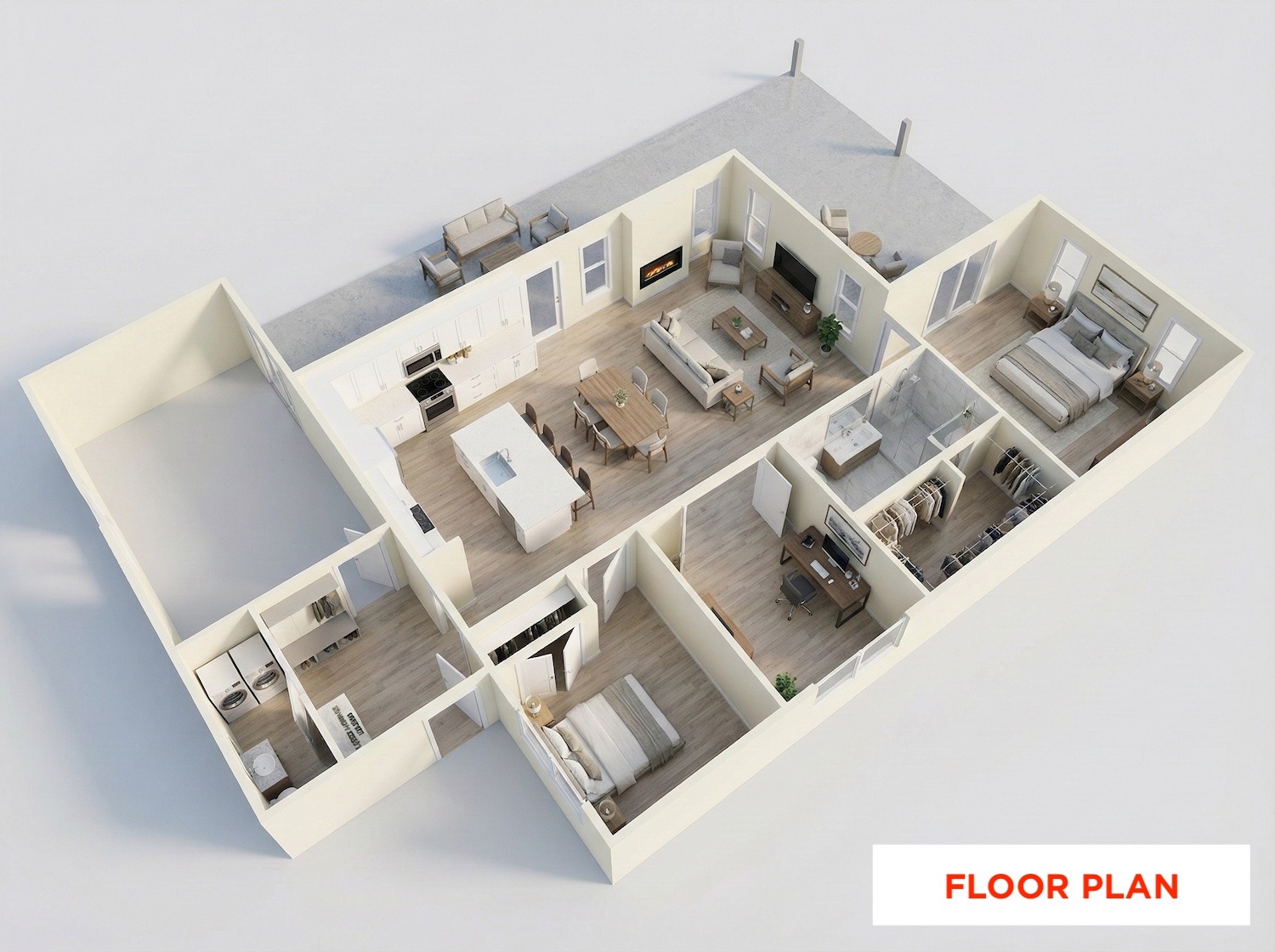
.jpg)
